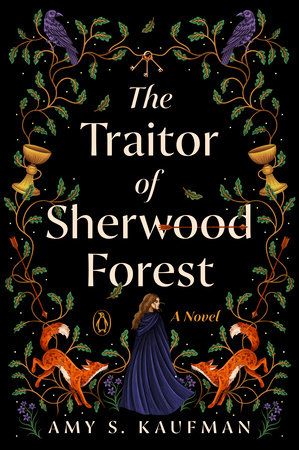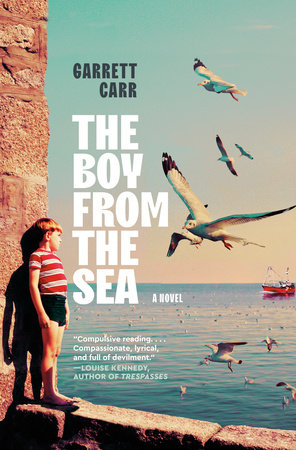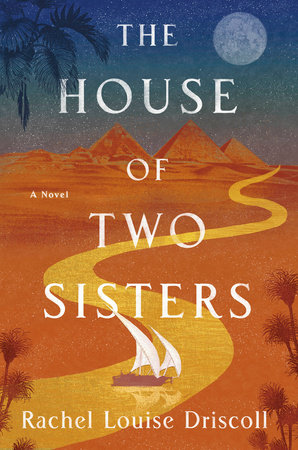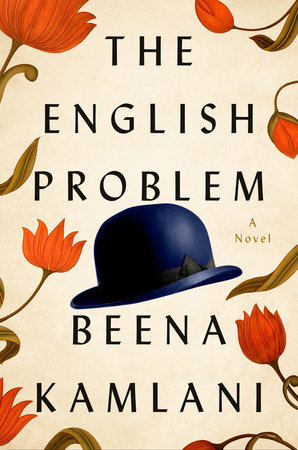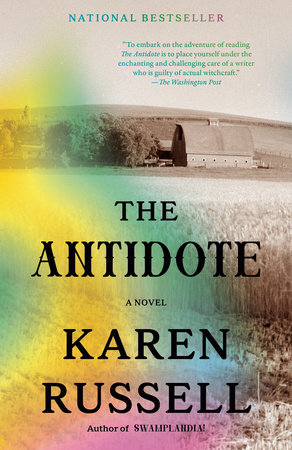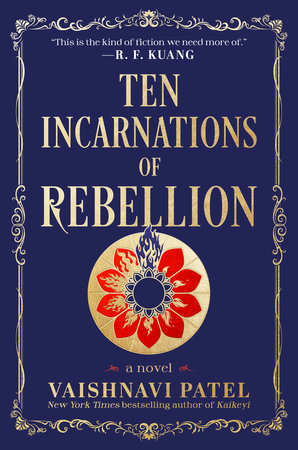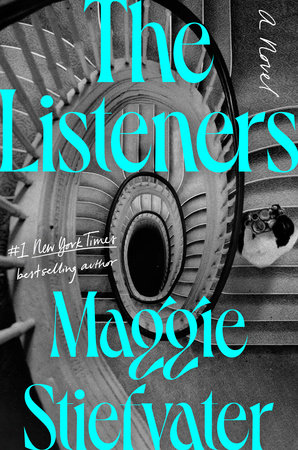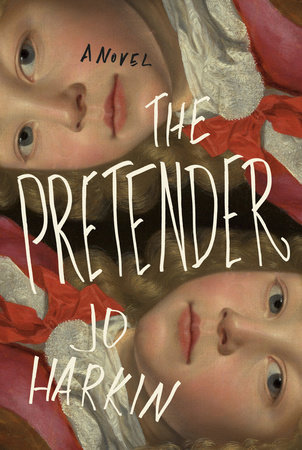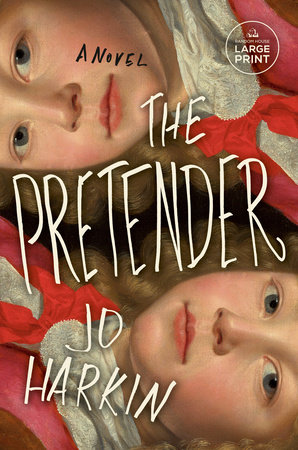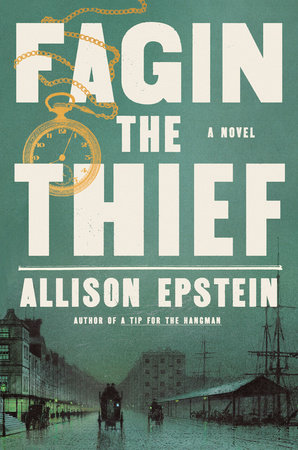The Pretender is set during the time of the Tudors’ ascent and tells the story of the little-known real-life figure, Lambert Simnel. When did you first encounter Simnel and what drew you to his story?
I never meant to write a historical novel. I had written a sci-fi novel about memory deletion, and I thought I’d follow that up with another sci-fi novel. I should have been researching brain imaging technology, but I’m an elite-level procrastinator, and so I started reading a book about the Kings and Queens of England instead.
I’d got to the reign of Henry VII when I discovered the mysterious character of Lambert Simnel. He was—as the official story goes—a low born boy, plucked from obscurity, trained in courtly manners by powerful nobles, advertised to the public as a York heir. He became the figurehead of a rebellion, ‘leading’ an army in a doomed attempt to depose the king.
I was interested enough to google on. I assumed at first that Lambert was a simple fake. But I found out that the Duke of Clarence, the Earl of Warwick’s father, really did try to swap his baby son for his safety. (Which was one of the things that got him executed for treason.) And there were so many more inconsistencies both in official records and in Simnel’s own confession—which was undoubtedly written for him. The more I read, the stranger and more suspect the whole thing seemed.
I was mostly intrigued by the idea of Lambert himself. Two opposing sets of unscrupulous and Machiavellian political forces—in this case the Tudors and the Yorks—are a familiar theme in life and fiction. But who was this mystery boy in the middle? And how did he feel about what happened to him? He was taken around Europe, crowned, invaded with an army, defeated, pardoned all while he’s still in his teens. We last see him put to work in Henry’s kitchens, which was an intentional humiliation. He falls off the pages of history after this, while he’s still young.
Would he have tried to have some agency, I wondered. Did he have relationships as he grew up, did he fall in love? After he lost everything, did he want revenge against his puppet masters? (The answer to these questions, for me, was yes.)
Once these questions came into my mind, I was doomed. I put the sci-fi to one side, abandoning the near future to travel five hundred years back into the past.
When the reader first meets Simnel, he isn’t Simnel at all: he’s John Collan, a low born farmer’s son. And over the course of the novel, other names and lore are thrust upon him, all in pursuit of the throne. Can you talk about his arc as a character?
John has a complicated evolution as a character: he goes from John Collan, to Lambert Simons, to Edward Earl of Warwick, to Simnel, and finally to John again, without ever knowing which of his identities is ‘real.’
When the novel begins John’s a simple village child nearing teenagehood, an innocent, high-spirited and god-fearing boy. After he’s suddenly taken from his family by the shadowy York operators who plan to groom him to be a puppet king, he’s shocked and sad—but he still has a rebellious spirit, and is always looking for ways to gain some agency over his own life.
When he meets Joan, the enchanting but Machiavellian daughter of the Great Earl of Kildare, she urges on him the importance of being cynical, strategic and ruthless. Simnel resists, thinking he can turn Joan herself to a more honourable path. But after he loses Joan, his friends, and his own identity as Edward after the Yorkists’ failed invasion of England, Simnel returns to Joan’s teachings: working as a spy in the court of Henry VII, relentlessly pursuing vengeance against the people who destroyed his life.
Only after he succeeds does he take stock, and, in a bittersweet finale, try to work out what his own identity and future will look like. For the first time, it’s his own choice.
Historically speaking, can you describe what a pretender is? To what extent do you think the idea of pretending—or being a pretender—relates to the novel thematically?
The idea of being a pretender is really decided by the success of the attempt. Henry VII was himself seen as a pretender to the throne (especially with his tenuous blood connection) – until he took it, and then he was the King. Whereas Lambert Simnel is immortalized as a pretender.
The term pretender of course also has modern resonance. The idea of some kind of fakery or inauthenticity—and we really struggle now with the concept of personal authenticity. The popular dictum is ‘be yourself’—but then we’re also told we can be whatever we want. Which is it? These two conflicting popular beliefs leave us none the wiser. And of course we change over time, so how do we decide what’s essentially ‘us’ and what isn’t? The quest to know oneself might ultimately be doomed.
Simnel is wrestling with the same questions, except for him it’s not just a personal and philosophical matter, but a central condition of his existence. At this time, your status at birth was critical to your identity. A peasant could never really be considered a gentleman, and vice versa. Attempts to rise above your origins in wealth and style were at best mocked, and at worst aggressively vilified. So this causes Simnel a lot of anxiety. Is he a noble, or is he something his society would consider to be an abomination: a peasant pretending to be a noble? We see him journey from his certain belief that he’s a peasant, to believing that he’s really an Earl, to doubt and fear when he understands that he doesn’t know the truth—to finally reaching an accommodation with ambiguity.
Can you talk about the research you conducted for this novel. What sources, people, or places were critical as you sought to bring this story to life? What were some of your favorite details about the time period that you incorporated into the book?
As an essentially lazy person, I prefer to avoid intensive research, and so the prospect of writing a medieval historical novel was not something I initially relished. But I had to write this the story. So I told myself I could get research down to a tight two months, spend eight months writing, two editing and move on with my life. That was in 2020.
I used a lot of historical books and journal articles—Thomas Penn was one standout source in terms of usefulness—but I also ended up looking at a lot of primary source material. The parliament rolls, records of attainders and proclamations, letters written by public and private people of the time.
I also tried to read what Simnel would have been reading. I wanted not only to represent the political and personal elements of Simnel’s life, but also the culture. The books and plays of the time would have informed his mindset and personality in much the same way as TV and the internet permeate and shape our own consciousness. So as well as familiarizing myself with his physical and political world, I decided I needed to read all the things he would have read. (Again, as a lazy person, this was another major error.)
Once the lengthy research stage was over, during the writing itself I often had to check things. I had a character mopping the floor at one point, then realized on a reread that they would have had rushes laid over the ground. Someone’s drinking: okay, what from? Is the bottle leather, ceramic, glass?
I realized there’s a relative paucity of information on this specific period in popular history books. There’s a lot on the early medieval era and a lot on the later Tudors—Henry VIII and Elizabeth I—but not so much on this transitional period from late medieval to early modern. When exactly did they stop wearing this, or start eating that. It could be frustratingly hard to work out. The language was changing too, from Chaucerian middle English to early modern English. It really was the worst possible era to land on. At first I was congratulating myself at finding a lesser known part of British history, but that sense of smugness left me very quickly.
That’s not to say I didn’t enjoy the research. In fact, I got a bit too into it. I found myself drawn into the discourse to the point that I was composing hot takes on five-hundred-year-old polemics. Something would outrage or intrigue me, and poor Simnel would have to address it in a lengthy train of thought. After some wise advice from my agent, friends and family, I cut a lot of this away. I had to ask myself at every step: how is this developing Simnel as a character? Is it relevant to him as a person, or am I just nerding out? The line between self-indulgence and audience enjoyment was something I had to locate in multiple redrafts.
I did however insist on referencing the strangest, funniest and most obscene things I came across as I researched, for nothing other than pure entertainment value. Donkeys being prosecuted in court for seducing men, corpses being prosecuted for heresy. Fart jokes. Penis trees. If it made me laugh, I put it in.
Regarding travel, I visited Oxford a lot, the Kent coast, and London—though London didn’t actually end up appearing in this novel, except as a view from one of Henry’s palaces. I had initially planned to go on a research trip to Ireland but found out that all the key places of his stay – Maynooth castle, the Cathedral he was crowned in, and his residence in Dublin are all sadly gone now. So it would have been mostly a drinking holiday. Obviously, I still plan to do it.
I’m also going to go to Belgium next year, which has much better-preserved medieval architecture. The exterior of Margaret’s palace at Mechelen is something I’m particularly looking forward to seeing.
Among the words I would use to describe the novel’s voice: wickedly funny, delightfully bawdy—and also deeply true to the novel’s fifteenth century setting. How did you develop the tone?
This was an interesting challenge for me. One of my literary heroes is Hilary Mantel, and I loved her masterful Wolf Hall trilogy. I actually followed her method of fictionalizing history in that when the records of the time seemed definitive—and not obviously subjective/propaganda—I stuck to it. This approach—while knotty at times—served me well.
But when it came to style, Hilary Mantel and I had to part company. My attempt to write a serious epic came apart with the very first line. It’s quite a famous story now that Mantel woke up one morning with the first line of Wolf Hall in her head. ‘So now get up.’ And that set the tone for everything that followed; it was her way in.
I had a similar experience. My first line came to me very early on, out of the blue. ‘Today I will defeat the goat.’ And that’s the kind of writer I am. It dawned on me then that maybe I wasn’t going to be another Mantel.
But then if my research had revealed anything, it was that this era was a blackly comic one. The stories these people told were hilarious, dark and obscene. And not just their fabliaux (rude stories). Their morality plays contained jokes about cunnilingus and shitting. They doodled penises in the margins of their textbooks. In the Morte d’Arthur, our primary source for the now-Disneyfied legend of King Arthur, all the knights and ladies are behaving about as badly as it’s possible to behave. Libidinous bishops, nuns and priests were a common source of comedy. Chaucer’s satire in particular is still on point to this day.
And while the story I’m telling is sometimes tragic and sometimes violent, it’s also—with its central conceit of baby-swapping and audacious rebellion—essentially ridiculous. Furthermore, I’m kind of a ridiculous person. So I decided: why am I fighting this?
In fact, my main guiding light here was George Saunders’ Lincoln in the Bardo. It’s profound and moving and exquisitely written, but also you have, as a main character, a ghost with a huge permanent erection. Which in no way detracts from the pathos of his experience. That erection was my North Star. If I felt like I’d been too silly, I reminded myself of it and kept on writing.
And I think I ended with something that is sometimes serious and sometimes sad but also humorous. And I think if a medieval person was given this book—maybe on parchment or an early print edition—they would enjoy that. And then they’d doodle a man playing a trumpet with his bum in the margins.
Jennott and Joan are some of my favorite characters I’ve encountered in fiction. What—or who—were your inspirations for them? Can you describe their respective relationships to Simnel?
Joan is a kind of a de-facto stepmother to Simnel. When he’s a child, she works at his dad Will Collan’s farm as head dairymaid, and is having a sexual relationship with Will—until he makes a marriage of convenience with a nearby widow. Jennott is an important early influence for Simnel. She’s not the gentle type—she’s thrown more than a few pots at people’s heads—but she loves Simnel, and she’s protective of him. She leaves the farm before the day comes that he’s whisked away by a mysterious York noble, and he regrets that she wasn’t around to stop it happening.
Joan was a favourite of mine to write. Like Jennott, she made me laugh. She’s killed too many people to be best friend material, but I’d definitely go for a drink with her.
Joan is the daughter of Gerald Fitzgerald, the famous Great Earl of Kildare and de facto King of Ireland. She’s more than a match for her formidable father and is conniving, sharp and ruthless. We meet her while she’s violently putting an end to her latest engagement. Her relationship with Simnel is a complex one: initially based on his teaching her Latin in exchange for her assistance with navigating courtly politics. Of course he ends up falling in love with her, though he’s never sure if he can trust her. And later, once his innocence and faith are gone, it’s her lessons he returns to.
In terms of inspirations, I’m not sure where Jennott came from but I always hugely enjoyed the devious, hilarious character of Atia in the HBO series Rome, and I think she found her way into Joan.
What has the arc of your writing life been like? Why did you decide to turn to historical fiction—and do you find any similarities between historical fiction and sci-fi?
I started writing after I finished my English degree. It wasn’t quick or easy to find a publisher. I didn’t know anyone in the industry, and my first attempts at writing were objectively terrible. But I didn’t let lack of talent or connections stop me. I was working odd jobs, writing in my spare time, and sending manuscripts out to the slush piles of agents. I’d get a round of form rejections, cry, decide I was going to abandon writing, then redraft and send it out again. This went on for years.
Eventually, in my late twenties, I wrote something publishable and not long after that I got lucky and an overworked agency employee actually read the thing. I found an agent, they found me a book deal, and I’ve worked consistently as a writer since then.
My first four novels were fairly middle of the road accessible literary fiction. Looking back on them now, what I see is a lack of confidence. I would fall in love with something another novelist had written—say Carol Shields, Evelyn Waugh, Margaret Atwood—and then I’d try to write ‘something like that.’ An inevitably watered-down, bowdlerized version. I was scared to try to be funny in case it didn’t land; I was scared to be sexy in case people disapproved; I was scared to be weird in case people thought I was a weirdo. Most of all I was scared of being distinctively myself, in case it wasn’t good enough.
It’s not really surprising that none of these books had an impact on the literary world. I was getting a little frustrated with my career by this point, when I read a David Bowie quote that made a big impression on me. To paraphrase, he said: when you create something, you should imagine you’re in water, and you have to wade out. Once your feet aren’t touching the bottom anymore, and you’re experiencing that fear—that’s the place that good art comes from.
I reazlied all my previous books were very much created in the shallow end of the pool. I had never taken a risk or pushed myself. So I changed my approach. I felt that even if what I wrote didn’t do well commercially, at least I could look back on it and feel proud of writing something that only I could have written.
That’s when I came up with Tell Me An Ending. This was not a neat or formulaic book. It was a large literary speculative fiction novel with a ‘what if’ premise: ‘What if you were told you’d once deleted a short period of time from your memory, and now you could have it back? What would you do?’
I had been in two two-book contracts with my first publishers so once those had concluded I let them know I wanted to do something different elsewhere. I had to part (amicable) ways with my agent too. The polyphonic nature of the novel, and the absence of a neat central plot that tied all the characters together, wasn’t for everyone. I was so lucky to find a new agent and publisher that appreciated it. And I felt that for the first time I’d written something more like myself. Though not fully myself, not yet.
When I fell in love with the story of Simnel—I saw, in this boy living five hundred years ago—an opportunity to really let loose. I decided if people thought it was weird and silly, I’m okay with that now: I think it’s a good thing to be weird and silly.
In terms of similarities and differences between sci-fi and history, there has absolutely been some thematic overlap. One of the central themes of Tell Me An Ending was the notion of identity—how important is it? How do people come to terms with something that threatens their idea of being a stable, defined self. In this case, a missing part of their own personal story. And Simnel is wrestling with these same questions: firstly, who am I, and secondly: does it matter?
So, even though these two literary worlds are five hundred years apart, and one of them doesn’t actually exist: it turns out some themes are universal, perhaps because they’re unanswerable. The note I wanted to leave both books on was not answers, but an idea of how to be comfortable in the absence of answers, to see the beauty in that.
What do you hope readers take away from The Pretender?
Firstly, enjoyment! The Pretender is in many ways a serious, dark book and its content demands it cover some knotty, heavy themes—loss, faith, identity, power, literature. But I also wanted it to be an absurd, irreverent, and hopefully funny read.
The other thing I’d love for readers to take away is more insight into the dawn of the Tudor period. We tend to fictionalize the reign of Henry VIII and his six wives, and the charismatic Elizabeth I— but their father/grandfather Henry VII and his reign were just as interesting. I’m sure I’ve made some inevitable errors, but I did spend a lot of time making the timeline and the world of the book as accurate as I possibly could. While Simnel’s life after the invasion and the interior lives of the characters are invented, I wanted everything that happens to be something that could happen. So for readers to know a little more about this fascinating but underexplored period of history, in which the language was changing from middle to early modern English, and the era from medieval to Tudor (renaissance), would be a wonderful thing.
